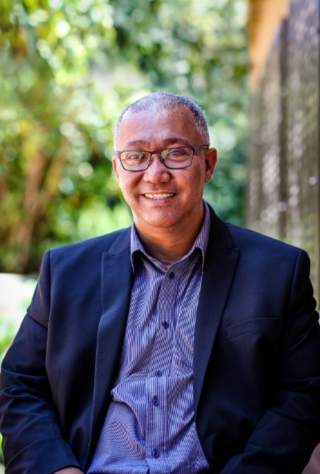Siyabuya urges taxi peace to enable vaccinations
Cape Town taxi wars are preventing vaccinations against the Covid-19 virus just as infections are rising in the Western Cape.
“We need peace because we need people to get their jabs,” said Siyabuya! leader Melene Rossouw.
“The fact that talks, including with government, have failed once again to produce agreement is devastating. It’s going to affect thousands of people in Cape Town who still cannot get to vaccination sites. This is tragic, particularly for older people who are most vulnerable to the virus.
“I know of people who cannot move from their homes because all forms of transport have come to a halt as a result of the taxi violence. This is directly affecting jobs and livelihoods, as well as vaccinations which are critical to both.
“Taxi drivers were heroes in the recent unrest in Gauteng and KwaZulu-Natal, helping to protect shops from looters. But in Cape Town they are killing each other over routes and harming the city’s economy by stopping people getting to work, shops and vaccination sites.
“Cape Town needs a rethink. Please people – lives are at stake and the virus is spreading. Without taxi peace, Cape Town cannot fight this virus,” she said.
Siyabuya is a voluntary movement formed to link people and groups who believe South Africa can emerge stronger from the coronavirus pandemic. It promotes moves to keep safe, feed others and get vaccinated as soon as people are eligible.
“Siyabuya believes that, by working together, we can #MakeSAbetter. We need taxi peace if that is going to happen in Cape Town,” Melene said.
-- ENDS --
About Melene Rossouw
Melene Rossouw is the external leader of Siyabuya. She is an internationally recognised gender and human rights activist, global award winner, public speaker, moderator, facilitator, strategist and consultant. An attorney with 13 years’ experience, Melene is founder of the Women Lead Movement in South Africa.
Her accolades include being selected by the prestigious Obama Foundation as an Obama Leader in Africa (2018) and as a Mandela Washington Fellow by the US Department of State in 2019. In October 2020, she was selected as one of the 100 Most Influential Young Africans and made the Top Ten list of Most Influential Young Africans by Africa Youth Awards. She was also recently named as one of the 100 Most Influential South Africans.
About Siyabuya
Siyabuya believes South Africa can emerge stronger from the Covid-19 pandemic. It aims to build networks across the country of people who share this belief and are working to achieve it. Those who are helping others, creating jobs and feeding the poor, are setting examples others can emulate.
Siyabuya! aims to #MakeSAbetter by instilling a common sense of mission, built from the ground up, through ordinary South Africans engaged in active citizenry to improve their fortunes and the lives of those around them.
For more information, visit our website at www.siyabuya.org.za
Priority vaccination plea to save lives
Risk of death rather than mortality rates should be the criteria that secures priority vaccination argues the QuadPara Association of South Africa (QASA). The organisation has made a plea to the Department of Health to include quadriplegics and paraplegics in the second round of the vaccine roll out. The organisations hopes this will prevent deaths among its members and ensure no one is left behind.
“Many quadriplegics and paraplegics are at a higher risk of contracting the COVID-19 virus,” explains Raven Benny, QASA COO. “By pushing their wheelchairs, catheterising or accepting assistance from their carer, they are placed in high-risk situations.
“For most, social distancing from their caregiver, family or friends are impossible as they need assistance with daily, essential activities. A vaccination might not prevent them from contracting the Coronavirus, but it can prevent a visit to the hospital.”
Many quadriplegics and paraplegics are at an increased risk of falling severely ill and hospitalisation when contracting COVID-19. Due to lifestyle factors, like a sedentary routine, many in the community have co-morbidities like diabetes or high blood pressure. In addition, pressure sores (an open wound) and urinary tract infections are common and put strain on an already compromised immune system.
Aside from the impact on limbs, a spinal cord injury plays havoc on the immune systems and nervous systems of quadriplegics and paraplegics. The immune system is slowed, which gives the virus more opportunity to spread.
“We want to keep our members out of hospital as we are very much aware that, unfortunately, they are not always considered a priority,” Benny continues. “In times of disaster, doctors will do what is best for the most, which might mean denying a high-risk patient access to a ventilator to help others.
“We respect the medical practices that prioritise saving as many people as possible. Instead, we are calling on the Department of Health to save lives. They have the resources to make sure our members are never placed in a situation where a doctor needs to decide between saving them and another with a strong immune system. We need to be vaccinated.”
QASA wrote to the Department twice. After the first letter, the Department enquired about the mortality rate among members. Aside from the limited information available regarding deaths, QASA argues that there is sufficient reasons to vaccinate the community.
“Are we going to be denied because there haven’t been enough deaths? How many should die before we are considered vulnerable? We call on the Department of Health to put risk of death as the highest priority rather than existing mortality rates,” says Benny.
“Afterall, are they in the business of saving lives or counting corpses?” he concludes.
-- ENDS --
Notes for the Editor:
For more questions, concerns or comments:
Raven Benny, QASA COO
This email address is being protected from spambots. You need JavaScript enabled to view it.
031 767 0352
Mariska Morris, Communications officer
This email address is being protected from spambots. You need JavaScript enabled to view it. OR This email address is being protected from spambots. You need JavaScript enabled to view it.
084 788 8399
Read more on the vulnerability of quadriplegics and paraplegics:
Christopher & Dana Reeve Foundation, 2021. Christopher & Dana Reeve Foundation. [Online] Available at: https://www.christopherreeve.org/living-with-paralysis/health/secondary-conditions/covid-19-and-spinal-cord-injury[Accessed 21 April 2021].
Calvo, E. et al., 2020. Why Does COVID-19 Affect Patients with Spinal Cord Injury Milder? A Case-Control Study: Results from Two Observational Cohorts. Journal of Personalized Medicine, 10(182).Louw, G., 2020.
Choice. A matter of ethics.. Rolling Inspiration, Issue 3, pp. 24-26.Stillman, M. D. et al., 2020.
COVID-19 and spinal cord injury and disease: results of an international survey. Spinal Cord Series and Cases, 6(21).



